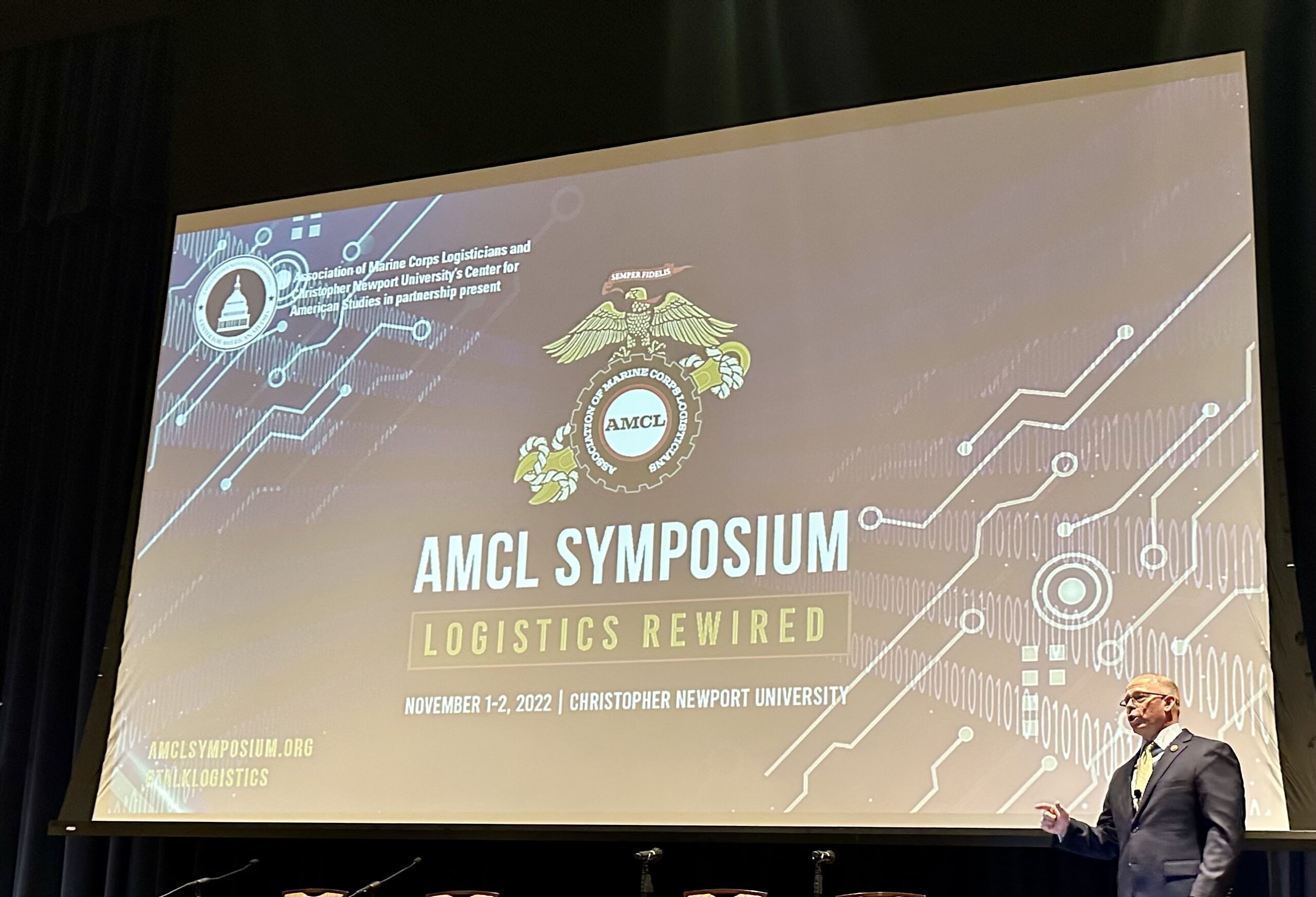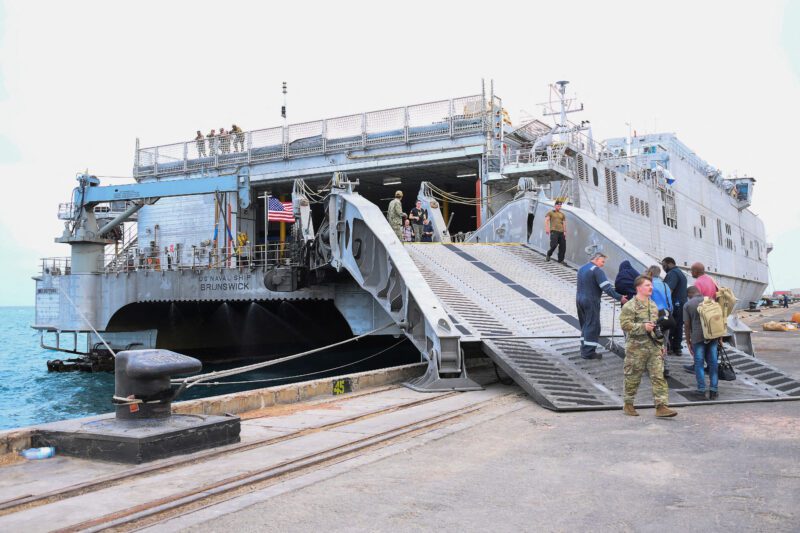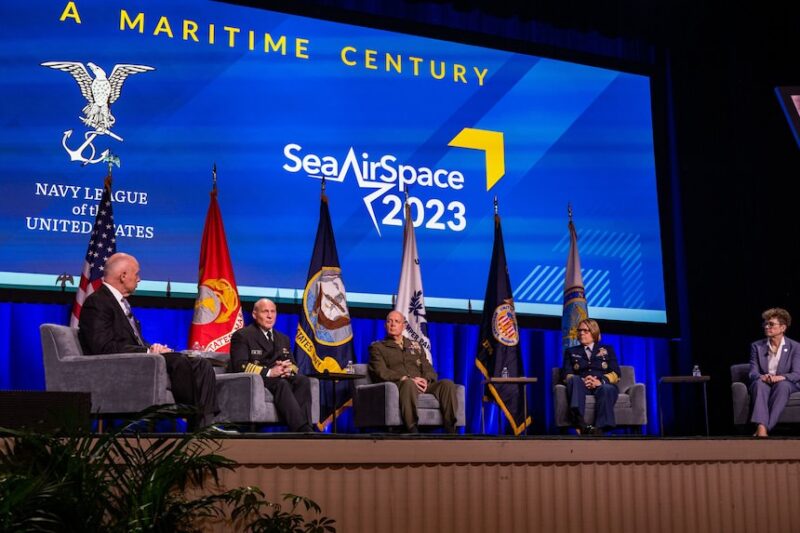UK To Remove Andrew From Role As Royal Navy Vice Admiral
LONDON, Nov 2 (Reuters) – Britain’s former prince Andrew is due to be stripped of his last remaining military position as part of King Charles’ decision to remove his brother from public...

by Captain John Konrad (gCaptain) In recent months, the US Navy’s critical lack of available amphibious ships has led to the Marine Corps being unable to assist in major crises in Turkey and Sudan. Commandant Gen. David Berger discussed this situation during a House Armed Services Committee meeting and expressed his regrets for leaving gaps that other services need to cover. One of those services that has stepped in is the US Merchant Marine.
“Regarding recent events in places like Turkey and Sudan, I feel as though I let down the combatant commander,” Commandant Gen. David Berger expressed to the House Armed Services Committee members on Friday. “General Michael Langley (commander of the United States Africa Command), lacked a sea-based option, which is crucial for reinforcing embassies and conducting evacuations.”
This problem highlights the growing debate in Congress over the Navy’s inability to maintain the legally mandated 31 amphibious ships the Marine Corps needs for missions like this and has led to increasing emphasis on the importance of Merchant Marine manned vessels for fulfilling missions.

Also Read: Shipbuilding Battle: Deep Dive On The Fight Between 3 Commandants And 1 Admiral
While merchant ships cannot replace even a percentage of the capabilities of large US Navy namphibious ships, the US Merchant Marine, also affected by the nation’s shipbuilding crisis, has made efforts to address a portion of the shortfall. In response to the crisis in Sudan, the Military Sealift Command ship USNS Brunswick, crewed by US Merchant Mariners, managed to evacuate approximately 300 individuals from Sudan to Saudi Arabia, demonstrating their valuable contribution during such emergencies.
As Gen. Berger noted in a recent Navy League event, “logistics, logistics, logistics” are crucial, and the US Merchant Marine is the military branch that moves the most military cargo by volume. Recognizing the importance of US Merchant Mariners, the Marine Corps is slowly deepening its partnerships with them. One example is the leasing and modification of an Offshore Support Vessel from Hornbeck Offshore Services, which has been transformed into a mini-jack-up rig. This versatile vessel can be used as a temporary pier in shallow waters, providing invaluable support in crises. The Corps has also increasingly relied on Lewis B. Puller class expeditionary mobile base ships, which are manned by a combined crew of US Navy sailors and US Merchant Mariners.

The Association of Marine Corps Logisticians (AMCL) is on USMC organization that’s taking the lead in fostering stronger collaborations with the US Merchant Mariners, Military Sealift, and commercial maritime logistics experts. Having had the opportunity to speak at exceptional event AMCL’s annual event last year – which also included participation from The US Maritime Administration, Military Sealift Command, US Transportation Command and US Coast Guard – I witnessed firsthand its impact as a catalyst for new ideas that the USMC is now pursuing. This conference offers logisticians at various levels and from all branches of service the resources and insights needed to address logistics and supply chain challenges effectively.
The second annual in-person AMCL Symposium, is taking place from August 8-10, 2023, and promises to offer a platform for thought leadership, innovation, and connection among the logistics and supply chain professional community. The agenda will focus on emerging technology, digital transformation, talent management, leadership and professional development, innovation culture and mindset, public-private partnerships, and Marine Corps Force Design 2030.
The emerging partnership between the Marine Corps and the Merchant Marine, along with collaborations with allied merchant navies from nations such as the Philippines, showcases an innovative strategy to tackle logistical challenges. This approach holds the potential to significantly enhance the efficiency and effectiveness of crisis response in the future. Despite the ongoing shipbuilding crisis, which has hindered the nation’s ability to respond to international crises and deliver vital supplies to troops (including the alarming shortage of tankers required to provide much-needed fuel for aviation units), these collaborations and shared resources between branches offer a path to improve and strengthen capabilities.
Also Read: Top Navy Admiral Says No To Icebreakers
The shipbuilding crisis the nation faces is likely to deepen the military’s growing logistical problems. However, through combined efforts like the partnership between the Marine Corps, the Merchant Marine, and commercial logistics professionals national security could be strengthened, and the capacity to respond to a wide range of global emergencies – from humanitarian missions to the possibility of full-scale conflict – will be enhanced.

Sign up for gCaptain’s newsletter and never miss an update

Subscribe to gCaptain Daily and stay informed with the latest global maritime and offshore news
Essential news coupled with the finest maritime content sourced from across the globe.
Sign Up